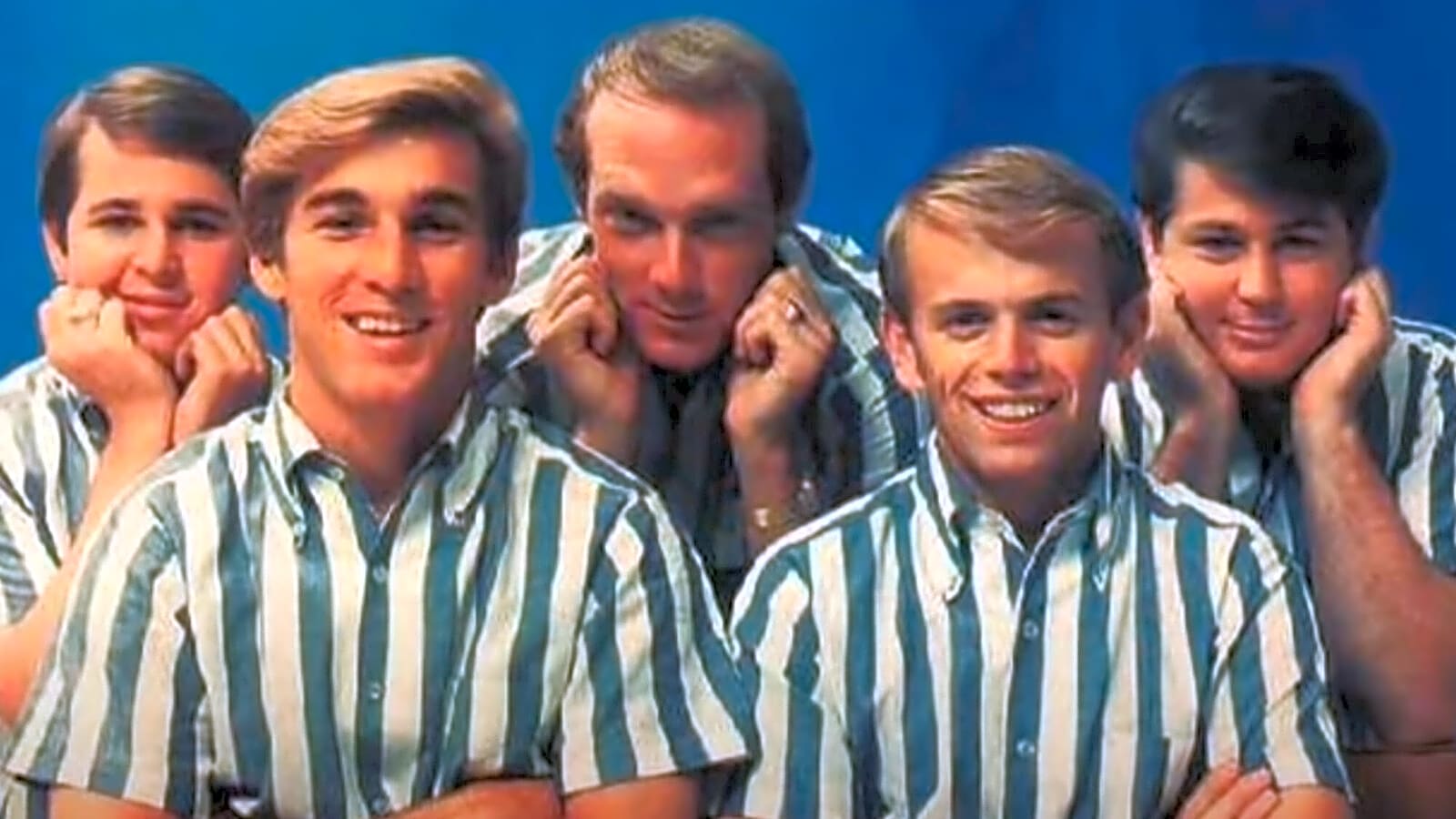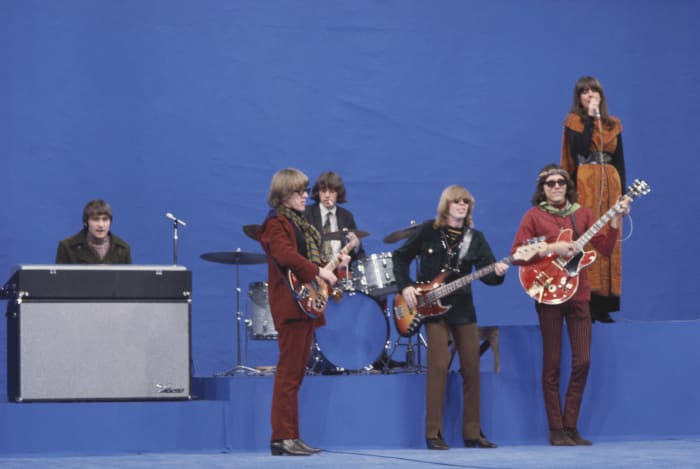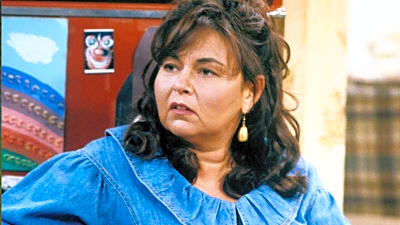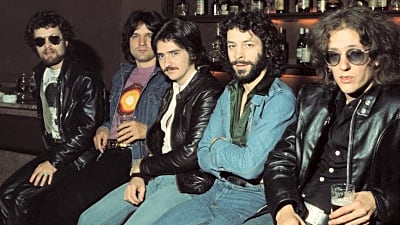- Home
- Quizzes
- My Quiz Activity
- Newsletters
- MY FAVORITES
- Add Sports/Teams
- SPORTS
-
NFL
- NFL Home
- Arizona Cardinals
- Atlanta Falcons
- Baltimore Ravens
- Buffalo Bills
- Carolina Panthers
- Chicago Bears
- Cincinnati Bengals
- Cleveland Browns
- Dallas Cowboys
- Denver Broncos
- Detroit Lions
- Green Bay Packers
- Houston Texans
- Indianapolis Colts
- Jacksonville Jaguars
- Kansas City Chiefs
- Las Vegas Raiders
- Los Angeles Chargers
- Los Angeles Rams
- Miami Dolphins
- Minnesota Vikings
- New England Patriots
- New Orleans Saints
- New York Jets
- New York Giants
- Philadelphia Eagles
- Pittsburgh Steelers
- San Francisco 49ers
- Seattle Seahawks
- Tampa Bay Buccaneers
- Tennessee Titans
- Washington Commanders
-
MLB
- MLB Home
- Athletics
- Arizona Diamondbacks
- Atlanta Braves
- Baltimore Orioles
- Boston Red Sox
- Chicago White Sox
- Chicago Cubs
- Cincinnati Reds
- Cleveland Guardians
- Colorado Rockies
- Detroit Tigers
- Houston Astros
- Kansas City Royals
- Los Angeles Angels
- Los Angeles Dodgers
- Miami Marlins
- Milwaukee Brewers
- Minnesota Twins
- New York Yankees
- New York Mets
- Philadelphia Phillies
- Pittsburgh Pirates
- San Diego Padres
- San Francisco Giants
- Seattle Mariners
- St. Louis Cardinals
- Tampa Bay Rays
- Texas Rangers
- Toronto Blue Jays
- Washington Nationals
-
NBA
- NBA Home
- Atlanta Hawks
- Boston Celtics
- Brooklyn Nets
- Charlotte Hornets
- Chicago Bulls
- Cleveland Cavaliers
- Dallas Mavericks
- Denver Nuggets
- Detroit Pistons
- Golden State Warriors
- Houston Rockets
- Indiana Pacers
- Los Angeles Clippers
- Los Angeles Lakers
- Memphis Grizzlies
- Miami Heat
- Milwaukee Bucks
- Minnesota Timberwolves
- New Orleans Pelicans
- New York Knicks
- Oklahoma City Thunder
- Orlando Magic
- Philadelphia 76ers
- Phoenix Suns
- Portland Trail Blazers
- Sacramento Kings
- San Antonio Spurs
- Toronto Raptors
- Utah Jazz
- Washington Wizards
-
NHL
- NHL Home
- Anaheim Ducks
- Boston Bruins
- Buffalo Sabres
- Calgary Flames
- Carolina Hurricanes
- Chicago Blackhawks
- Colorado Avalanche
- Columbus Blue Jackets
- Dallas Stars
- Detroit Red Wings
- Edmonton Oilers
- Florida Panthers
- Los Angeles Kings
- Minnesota Wild
- Montreal Canadiens
- Nashville Predators
- New Jersey Devils
- New York Islanders
- New York Rangers
- Ottawa Senators
- Philadelphia Flyers
- Pittsburgh Penguins
- San Jose Sharks
- Seattle Kraken
- St. Louis Blues
- Tampa Bay Lightning
- Toronto Maple Leafs
- Utah Mammoth
- Vancouver Canucks
- Vegas Golden Knights
- Washington Capitals
- Winnipeg Jets
- NCAAF
- NCAAM
- Olympics
- Boxing
- Entertainment
- Lifestyle
- Golf
- MMA
- Soccer
- Tennis
- Wrestling
- Sports Betting
- More Sports
- RESOURCES
- My Account
- YB on Facebook
- YB on Twitter
- YB on Flipboard
- Contact Us
- Privacy Policy
- Terms of Service

20 hit songs that were not written by the band's main songwriter
Is your rock band a democracy or a dictatorship? It depends on who's writing the songs. For most groups, the singer is often the lead songwriter, but certain bands may have a frontman vocalize the songwriting guitarist's words (see: The Who, Fall Out Boy, Oasis). Yet some groups are open to collaborating, for having the drummer try out a track or have the keyboardist turn his noodling into something tangible. They may not be the primary songwriter for their bands, but here are 20 instances of when a band let someone else take the songwriting lead only to deliver the gold, frontman be damned.
Jefferson Airplane "Somebody to Love" (Darby Slick)

While the scrappy hippie pop of Jefferson Airplane's debut album certainly had its fans, it was the lead single "Somebody to Love" from their legendary sophomore record "Surrealistic Pillow" that launched the band onto the radio, going #5 in the U.S. and becoming a generational anthem. Yet as lead singer Grace Slick wails on its chorus, they aren't her words. In fact, they're her brother-in-law's. Darby Slick was a guitarist for the band The Great Society, which Grace was also in along with her husband, drummer Jerry. When she left the group, she took Darby's song with her, and during the "Surrealistic Pillow" sessions, they recorded that along with a Grace original called "White Rabbit", both of which became the group's signature numbers. Columbia Records wanted to capitalize on Jefferson Airplane's success, pushing through some Great Society live recordings featuring Darby's track, but everyone remembers the Jefferson version.
The Beatles "Something" (George Harrison)

While the songwriting partnership between John Lennon and Paul McCartney was nothing short of legendary, George Harrison couldn't have found a better environment to learn from the best and turn into a god-tier craftsman. While Harrison helped pen Beatles songs prior to "Abbey Road", it was on this seminal 1969 record that many critics felt that Harrison was writing classics on par with his bandmates. "Here Comes the Sun", off the same album, was also a contender for this slot, but the romantic, swooning "Something" is Harrison's biggest hit with the Beatles, going straight to #1 in the U.S.
Pixies "Gigantic" (Kim Deal)

The wild and damaged art-punk of Boston's Pixies has forever altered the course of rock music, from their loud-soft compositions to their deliberately aggressive recording techniques. Yet throughout their tenure, guitarist/singer Black Francis was the principal songwriter, with many noting the band's final original lineup record in 1991 was basically a Francis solo album. Yet right in the middle of their legendary 1988 full-length "Surfer Rosa" lies "Gigantic", a co-write between Francis and bassist Kim Deal that features Deal taking the lead vocal. The song is one of the band's most immediate numbers, with that seductive bassline drawing listeners in, and has become one of their most recognizable tracks next to "Where Is My Mind?". The song endeared Deal to many, which in turn lead to much tension between her and Francis, eventually leading to the band's dissolution. When Deal formed her own band, The Breeders, they moved out of the college rock playlists and onto actual pop radio with the crossover smash "Cannonball".
Stone Temple Pilots "Trippin' on a Hole in a Paper Heart" (Eric Kretz)

The backbone of alt-rock heroes Stone Temple Pilots has been the interplay between late frontman Scott Weiland's surreal lyrics and the musicianship of the brothers DeLeo: Robert and Dean. They played with new textures, new sounds, new angles, all to compliment the sinewy and surreal words that popped out of Weiland's noggin. Yet the band's long-standing drummer Eric Kretz had his share of co-writes throughout the years, and when it came to the second single from the band's beloved album "Tiny Music... Songs from the Vatican Gift Shop", the composition was all Kretz. With a driving rock riff soaring above pummeling snare hits, the song fits in perfectly with STP's aesthetic and serves as a perfect follow-up to the record's lead single, "Big Bang Baby". Unsurprisingly, it became the band's fifth chart-topper on the Mainstream Radio charts and still gets regular rock station play to this day.
Pearl Jam "Nothing As It Seems" (Jeff Ament)

Pearl Jam has always been known for having stellar musicianship, but the face of the grunge rock kingpins has always been Eddie Vedder, who not only sings but has taken on the lion's share of the songwriting, especially when it comes to lead singles. However, for 2000's twisty, genre-jumping album "Binural", it was previewed with the brooding preview track "Nothing As It Seems", penned by bassist Jeff Ament. In interviews, Vedder acknowledged that "Binural" was a challenging album, so they wanted to have the songs shipped to radio to reflect that sonic. The gambit worked, as "Nothing" went Top 10 on Billboard's rock radio charts and entered the Top 50 of the Hot 100. Nothing really is as it seems when it comes to Pearl Jam.
Blur "Coffee + TV" (Graham Coxon)

Even more than bands like Oasis, Blur is often one of the first bands that come to mind when considering "Britpop". While the art-school lads had a penchant for a hooky melody and quirky character studies, the tension between frontman Damon Albarn and next-level guitarist Graham Coxon is what helped keep their songs so fresh. After years in the Britpop wilderness, Coxon insisted the band lean into edgy American alternative rock, giving them a surprise worldwide hit with "Song 2". On their experimental 1999 album "13", which ended up being the final album that featured Coxon in full capacity for some time, the bespectacled axe-man not only penned but sang on the jaunty strummer "Coffee + TV", which ended up being one of the most digestible tracks from the genre-pushing full-length. Coxon was always well-loved among music nerds, but "Coffee + TV" was the kind of big hit that elevated his profile and pointed to the arc his solo albums would take. While the group re-united later on and even recorded a sloppy new album in 2015, few things in Blur's catalog have gone down as easy as some "Coffee + TV".
The Beach Boys "Slip On Through" (Dennis Wilson)

While "Pet Sounds" has been rightly lionized as one of the best pop albums ever made, Brian Wilson's ever-expansive songwriting ambition got the better of him and threw the band into a creative crisis in an era where acts were expected to put out several albums a year. While the band has always featured the songwriting talent of Mike Love, Carl Wilson, and Bruce Johnston, it is the golden-voiced Dennis Wilson who finally got to shine through on the release of the 1970 album "Sunflower", the band's first for Reprise Records. Allegedly, the label didn't like the first batch of songs they recorded, forcing the Boys to make a new record from scratch, and in doing so, helped recapture some of their early-'60s mojo. While Dennis had a heavy hand in crafting the tracks for 1968's laid-back full-length "Friends", the rocking "Slip On Through" unveils a new side of Dennis' personality. It not only opens the "Sunflower" album but was picked as a later single, fully featuring Dennis coming into his own under the tutelage of his talented family members. Dennis' legacy would get cut tragically short, but his beautiful songs will never slip on through unnoticed.
Kiss "Beth" (Peter Criss)

If Kiss is known for anything, it's excess. Increasingly elaborate guitar solos, explosions and fire during their live shows, one wacky merch idea after another, etc. Yet after years of hard-charging pop-metal hits, what happens when the group dials it back? "Beth" is a rare Kiss ballad that also got released as a single, and as it turns out, it's still their only Top Ten hit in America. While Paul Stanley often bears much of the band's songwriting load himself, "Beth" has the distinction of being co-written by drummer Peter Criss, but over the years, that's come into question, as Criss brought the song over from the band Chelsea, and its primary creator was guitarist Stan Penridge. While Penridge and producer Bob Ezrin are also listed as co-writers along with Criss, even Paul Stanley has cast doubt on Criss' songwriting abilities, once going so far as to declare, "if you write one hit, you should be able to write two." Criss, however, still takes credit for his work on the track, noting that the lush love number winning a People's Choice Award is what really got under the skin of his bandmates.
The Kinks "Strangers" (Dave Davies)

While most of the songs on this list were released as singles, "Strangers" is an album track from the legendary Kinks that was never serviced to radio. However, if you were to look at the band's most listened-to songs, "Strangers" routinely makes an appearance, showcasing how embraced by the fans this track has become over 50 years since its release. While The Kinks are so often thought of as the brainchild of Ray Davies (which makes sense since he writes and produces almost every record), it's older brother Dave who penned "Strangers", with its plain-spoken lyrics proving cathartic to many. It's been covered by so many bands at this point that it's gone down as a classic rock staple. However, its prominent inclusion on the soundtrack to the 2007 Wes Anderson film "The Darjeeling Limited" helped introduce it to a whole new audience, who are now no longer strangers to this Kinks classic.
The Rolling Stones "In Another Land" (Bill Wyman)

Much like the Lennon-McCartney songwriting partnership, the Mick Jagger/ Keith Richards collaboration for The Rolling Stones has endured over decades and through a litany of styles and genre experiments. Yet while "the Glimmer Twins" can take credit for creating most of the Rolling Stones songbook, others have dropped in with occasional contributions. Most notably, bassist Bill Wyman penned three songs for the band, one of which was the lead single off their deep dive into psychedelia, 1967's "Their Satanic Majesties Request". "In Another Land" is a strange beast, featuring tremolo-affected vocals atop honky tonk pianos, but the Stones' brand was such that the track still managed to chart at #87 in the U.S. While the album's follow-up single, "She's a Rainbow", is the most recognizable from the era, it was still great to see the band put their faith in Wyman at such a crucial time. In another time, "In Another Land" may have been an even bigger hit.
The Marshall Tucker Band "Fire On the Mountain" (George McCorkle)

Throughout much of The Marshall Tucker Band's run, Toy Caldwell penned many of the group's hits, handing them over to Doug Gray to sing. These songs included classics like "Can't You See" and "Heard It in a Love Song". Yet one of their all-time staples, "Fire on the Mountain", was penned by guitarist George McCorkle, and the band acknowledged how strong it was by putting it out as a lead single and setting it as the opener to their 1975 full-length "Searchin' for a Rainbow". The beautiful mid-tempo runner expected features both electric and slid-guitar solos galore, along with a healthy amount of flute, but its collision of instruments is what helped make the song stand out, becoming only one of only two songs the band was able to get into the Top 40. Even more amazingly, it was McCorkle's first-ever song for the group, but bolstered by the track's success, his songwriting load would increase on subsequent records, often writing in collaboration with Gray and flutist Jerry Eubanks.
The Police "Fall Out" (Stewart Copeland)

The Police have gone on to become one of the biggest New Wave acts ever to exist and one of the biggest bands in the '80s. As you scan their list of hits, they are all exclusively penned by Sting, save for the song that started it all: a scuzzy punk rock number called "Fall Out" written by drummer Stewart Copeland. It was one of the first songs ever presented to the group as they were getting together, and as the first-ever single they released, it even hit #47 on the U.K. singles chart. Yet once the Sting-penned follow-up "Roxanne" took off and encouraged the group to take in more reggae elements in their sound, the fast-rocking vibes of "Fall Out" would be rarely revisited, in large part due to Sting's dominance over the band's songwriting from then on out.
Faces "Ooh La La" (Ronnie Lane)

Faces are your favorite band's favorite band, a group heralded for their raw takes on blues-rock and folk-pop. The group's larger claim to fame during their short tenure was being fronted by the scratchy vocals of Rod Stewart, with songs often penned by Ronnie Wood. Yet for the jaunty, strummy "Ooh La La", Wood was the one in front of the mic, working on a track he co-wrote with bassist Ronnie Lane, who founded not only Faces but also its earlier incarnation, Small Faces. "Ooh La La" has had several lives since its 1973 release, going to the Top 40 in 1998 due to Rod Stewart covering it, even as the original Faces version has racked up hundreds of millions of streams on Spotify and been certified Silver in the U.K. Unfortunately for Lane, his version with his new band Slim Chance, despite having updated lyrics, is the most forgotten of the bunch.
Fleetwood Mac "Dragonfly" (Danny Kirwan)

The beauty and chaos of Fleetwood Mac rest in the ever-changing membership throughout their decades of existence. While the Stevie Nicks/Lindsey Buckingham/Christine McVie era is the one most people are familiar with, to say nothing of the early years featuring Peter Green, we'd be remiss if we didn't mention the run of Danny Kirwan, who played for a good portion of the Green era and then stepped into the spotlight on his own for a brief period of time. While bassist John McVie and Mick Fleetwood were always present, Kirwan, who was no slouch in the songwriting department, was able to get one charting hit during his tenure: the half-instrumental, deliciously psychedelic "Dragonfly". It was a bold move to release such a dreamy song as the first single following Green's departure, but the 1971 track ended up hitting #52 in the U.K. and would end up being their last chart entry until 1976's "Rhiannon" launched the band into a new commercial era.
Cheap Trick "Never Had a Lot to Lose" (Robin Zander/Tom Petersson)

Cheap Trick's delicious and immediate power-pop choruses were often attributed to the great guitarist Rick Nielsen, but that isn't to say the band sometimes had some outside help in the songwriting department. Their record label had the song "The Flame" in their possession and thought it'd be a good fit for the group, who recorded it despite Nielsen's apprehension. Amazingly, the label's instincts proved correct, as the song ended up being the band's only #1. On 1988's "Lap of Luxury", the same album that houses "The Flame", rests the song "Never Had a Lot to Lose", which was penned by band vocalist Robin Zander and bassist Tom Petersson, and was the kind of bright, up-tempo number that Cheap Trick become known for. While not anywhere near as big a hit as "The Flame", it still charted in the Billboard Hot 100, proving that despite the occasional Neilsen-assisted group co-write, Cheap Trick was filled with all sorts of hitmakers.
The Who "Trick of the Light" (John Entwistle)

The Who wouldn't be The Who were it not for the vision of Pete Townshend, who penned virtually everything the band ever created, all ably built up by a band of talented musicians. While 1978's "Who Are You" was bolstered by its legendary title track, the album's second single, "Trick of the Light", was a rare non-Townshend number, penned solely by bassist John "The Ox" Entwistle. Although the song failed to chart on its initial run (some found the driving rock song perhaps a bit too aggressive for the trends of the time), the track has become a long-running fan favorite, making it onto tour setlists and even the band's own greatest hits compilations, chart placements be damned.
The Pretenders "Hymn to Her" (Meg Keene)

The melodic New Wave stylings of the Pretenders were conceived of and executed by the incredibly talented Chrissie Hynde, and throughout the band's run, she's found ways to play around with the band's formula to great success. Yet the 1986 mid-tempo rocker "Hymn to Her" is a rare non-Hynde composition, and one that wasn't even penned by a full-time band member but Hynde's high school friend Meg Keene. Featuring a good deal of neo-pagan imagery, the song wasn't shipped to U.S. radio for promotion but was released as a single in the U.K., where it went all the way up to #8 and has become one of the band's most unexpected staples. As for Meg Keene, this was the only time she was ever involved in the music industry in any significant way, and after your only song becomes a hit of that scale, who wouldn't want to head out on a high note?
Oasis "Songbird" (Liam Gallagher)

The division of labor in Oasis was always clear: Noel Gallagher would write the songs, and brother Liam would sing them with his trademark sneer. As the band became very popular very quickly, Noel's songwriting process was celebrated and analyzed by rock scholars the world over, and while he had productive eras where he would tack some all-time great numbers onto the backs of singles as B-sides, he also knew he couldn't pen every song himself all the time, slowly encouraging Gem Archer, Andy Bell, and others to write their own tunes, even if said songs were very clearly derived from the template Noel set up. 2002's "Heathen Chemistry" was the first Oasis album not to be made up of Noel-only compositions, and "Songbird", a jaunty little piano number penned by Liam, was even released as the album's fourth and final single. Because Oasis was still revered as nothing short of a British institution at the time, the track went all the way up to #3 on the U.K. charts, continuing the band's indisputable hot streak.
Night Ranger "Sister Christian" (Kelly Keagy)

San Francisco hair metal outfit Night Ranger scored some hits in the '80s, often penned by singer Jack Blades and sometimes assisted by long-time guitarist Brad Gillis. Yet leave it to drummer Kelly Keagy to pen the heartfelt "Sister Christian" only to see it become the band's biggest hit. A nostalgic reflection on how quickly our family members around us grow up, the track went as high up as #5 on the U.S. charts and remains the band's calling card. The real-life Christy Keagy was apparently so mortified that an entire song was written about her she considered changing her name during the peak of its popularity. Encouraged by the success, Keagy would eventually put out some solo albums featuring his songwriting, but nothing could match the popularity of his one giant smash.
Queen "Radio Ga Ga" (Roger Taylor)

While this list has largely encompassed the one-off contributions from band members who often aren't included in the songwriting process, Queen was cut from a different cloth. While the British act's early years often had songs written by either singer Freddie Mercury or guitarist Brian May, their latter era featured notable contributions from bassist John Deacon, penning songs that were revered just as much as the May and Mercury originals. Yet it was drummer Roger Taylor who finally got to have a song of his released as a single with 1984's "Radio Ga Ga", and what do you know: it was a smash hit, reaching as high as #2 on the U.K. charts and quickly becoming a concert staple. Even Lady Gaga cites the song as why she chose her stage name. Taylor would later go on to write collaborative hits with Brian May, but this remains the only major chart stunner credited to him and him alone.
Evan Sawdey is the Interviews Editor at PopMatters, and has written for the likes SPIN, Entertainment Weekly, and several other sites. He currently hosts the 'Worldwide Tea' International Drag Race podcast. He lives in Los Angeles with his wonderful husband and can be found on most socials @SawdEye.
More must-reads:
Customize Your Newsletter
 +
+
Get the latest news and rumors, customized to your favorite sports and teams. Emailed daily. Always free!
PRIVACY POLICY COOKIE POLICY CONTACT US
ABOUT YARDBARKER TERMS OF SERVICE
By using this site, you agree to our Terms of Service and Privacy Policy.
This site is for entertainment purposes only.
There is no gambling offered on this site.
Gambling Problem? Call 1-800-Gambler.







